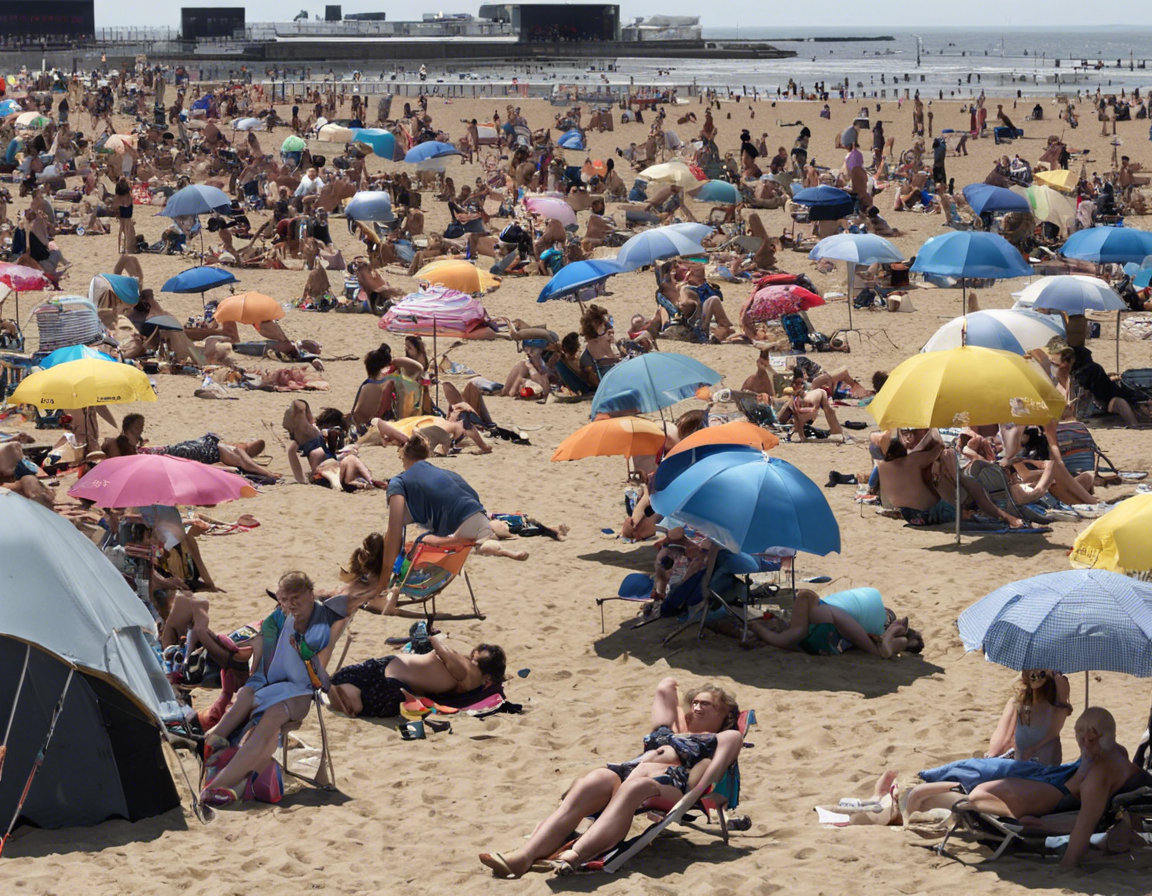With summer in full swing, the United Kingdom is bracing itself for a weekend heatwave. As temperatures soar across the country, it is important to stay informed and prepared for the soaring temperatures.
Understanding Heatwaves
A heatwave is defined as a prolonged period of excessively hot weather, which may be accompanied by high humidity. In the UK, a heatwave is declared when the daily maximum temperature is predicted to exceed a certain threshold for three consecutive days. Heatwaves can have serious health implications, particularly for vulnerable groups such as the elderly, young children, and individuals with pre-existing health conditions.
Weekend Forecast
According to the latest weather forecasts, the UK is set to experience a significant increase in temperatures over the weekend. Parts of the country are expected to see temperatures exceeding 30 degrees Celsius. This sudden surge in temperatures can lead to discomfort, dehydration, and heat-related illnesses if proper precautions are not taken.
Tips for Staying Safe During the Heatwave
- Stay Hydrated: Drink plenty of water throughout the day to stay hydrated and cool.
- Seek Shade: Avoid direct sunlight during the hottest parts of the day and stay in shaded areas.
- Wear Light Clothing: Opt for loose-fitting, light-colored clothing to help your body regulate its temperature.
- Use Sunscreen: Apply sunscreen with a high SPF to protect your skin from harmful UV rays.
- Avoid Strenuous Activities: Limit outdoor activities and exercise during the peak heat hours.
Health Risks of Heatwaves
Prolonged exposure to high temperatures can lead to a range of heat-related illnesses, including heat exhaustion and heatstroke. Symptoms of heat exhaustion may include heavy sweating, weakness, dizziness, nausea, and muscle cramps. If left untreated, heat exhaustion can progress to heatstroke, a life-threatening condition characterized by a high body temperature, confusion, and loss of consciousness.
Vulnerable Groups
It is crucial to pay special attention to vulnerable groups during a heatwave. Older adults, young children, individuals with chronic illnesses, and those taking certain medications are at a higher risk of heat-related complications. Checking on elderly neighbors, ensuring children stay cool and hydrated, and monitoring individuals with health conditions are important steps to take during a heatwave.
FAQs about Heatwaves
- What is the best way to stay cool during a heatwave?
-
The best way to stay cool during a heatwave is to drink plenty of water, stay in shaded areas, and avoid strenuous activities during the hottest parts of the day.
-
How can I protect my skin from sun damage during a heatwave?
-
To protect your skin from sun damage, make sure to apply sunscreen with a high SPF, wear a hat and sunglasses, and seek shade whenever possible.
-
Are there any specific foods that can help me stay cool during a heatwave?
-
Foods with high water content, such as fruits and vegetables, can help keep you hydrated during a heatwave. Cucumbers, watermelon, and citrus fruits are excellent choices.
-
Is it safe to exercise outdoors during a heatwave?
-
It is best to avoid exercising outdoors during the peak heat hours of the day. If you must exercise outside, do so in the early morning or late evening when temperatures are cooler.
-
What are the signs of heat exhaustion and heatstroke?
- Symptoms of heat exhaustion include heavy sweating, weakness, dizziness, nausea, and muscle cramps. Heatstroke symptoms include a high body temperature, confusion, and loss of consciousness.
As the UK prepares for a weekend heatwave, it is essential to take proactive steps to stay safe, cool, and hydrated. By following the tips outlined above and keeping a close eye on vulnerable individuals, we can navigate the hot weather with care and vigilance. Stay informed, stay safe, and enjoy the summer responsibly.

